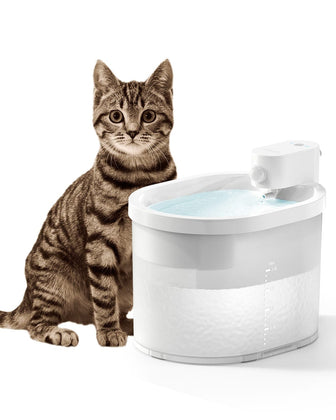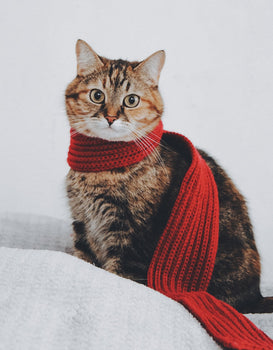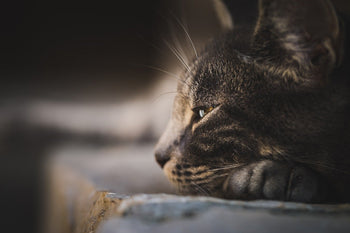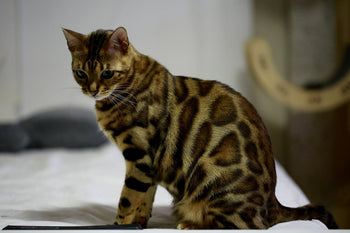Cats are known for their keen sense of smell, which they use to navigate their environment and communicate with other cats. While cats are often attracted to certain smells, there are also certain smells that they find unpleasant or even repulsive. Understanding what smells cats hate can be helpful for pet owners who want to keep their cats away from certain areas or discourage certain behaviors.
Common smells that cats hate include citrus, vinegar, peppermint, and onions. These smells are often used as natural repellents to deter cats from unwanted areas or behaviors. On the other hand, cats are often attracted to smells like catnip, which can create a positive environment for them.
While many natural smells are safe for cats, there are also potential dangers associated with certain scents. For example, some essential oils can be toxic to cats and should be avoided. It's important for pet owners to do their research and use smells safely and effectively.
What Smell Do Cats Hate? A Comprehensive Guide to Cat Repellents
Key Takeaways
Cats have a powerful sense of smell and are often attracted to certain scents.
Common smells that cats hate include citrus, vinegar, peppermint, and onions, while smells like catnip can be attractive to them.
While many natural smells are safe for cats, it's important for pet owners to be aware of potential dangers and use smells safely and effectively.

Common Smells Cats Hate
Cats are known for their sensitive sense of smell. While there are some smells that cats find pleasant, there are also certain smells that they absolutely hate. In this section, we will explore some of the most common smells that cats dislike.
Citrus, Lavender, Peppermint, Eucalyptus
One of the most well-known smells that cats hate is citrus. The strong scent of citrus fruits such as lemons, limes, and oranges can be overwhelming for cats. Cats also dislike the smell of lavender, peppermint, and eucalyptus.
These smells can be used to deter cats from certain areas of the house or garden. For example, spraying a citrus-scented air freshener in a room where a cat is not allowed can help keep the cat away. Similarly, planting lavender or peppermint in the garden can help keep cats away from flower beds.
Aversion to Smells
Cats have a natural aversion to certain smells that are associated with danger or harm. For example, cats dislike the smell of vinegar, which can be associated with cleaning products and chemicals. Similarly, cats dislike the smell of mothballs, which can be toxic if ingested.
It's important to note that while cats may dislike certain smells, it's not a foolproof method of keeping them away from certain areas. Some cats may be more tolerant of certain smells than others, and some cats may even find certain smells appealing. Additionally, using strong-smelling products around cats can be harmful to their health, so it's important to use these methods sparingly and with caution.
Potential Dangers of Certain Scents
Cautious Use
While some scents are known to repel cats, it is important to exercise caution when using them. Overexposure to strong scents can cause respiratory problems, nausea, and other health issues in cats. Therefore, it is recommended to use these scents in moderation and to avoid direct contact with the cat.
Safe and Unsafe Scents
Some scents are safe for cats, while others can be toxic and even fatal. For example, essential oils such as tea tree oil, cinnamon, and peppermint can be harmful to cats if ingested or applied directly to their skin. On the other hand, scents such as lavender, rosemary, and geranium are generally considered safe for cats when used in moderation.
It is important to note that each cat is unique and may react differently to certain scents. Therefore, it is recommended to test a small amount of the scent and observe the cat's reaction before using it extensively. Additionally, it is always a good idea to consult with a veterinarian before using any scents around cats, especially if the cat has a history of respiratory problems or other health issues.
Overall, while certain scents can be effective in repelling cats, it is important to use them with caution and to prioritize the cat's health and safety.

Tips for Using Smells to Repel Cats
Practical Advice
Cats have a strong sense of smell, and certain scents can be used to keep them away from certain areas. Here are some practical tips for using smells to repel cats:
Citrus: Cats are known to dislike citrus smells, so placing citrus peels around the garden or spraying citrus-scented air fresheners can help keep cats away. However, it is important to note that some cats may not be affected by this scent, so it may not work for everyone.
Vinegar: Another scent that cats tend to dislike is vinegar. Spraying a mixture of vinegar and water around the areas where cats are not wanted can help keep them away. However, it is important to note that vinegar has a strong smell that humans may find unpleasant as well, so it may not be the best option for everyone.
Lavender: While many humans find the scent of lavender to be calming, cats tend to dislike it. Placing lavender sachets or spraying lavender-scented air fresheners can help keep cats away.
It is important to note that while these scents may help deter cats, they are not foolproof and may not work for every cat. It is also important to use these scents in moderation, as overwhelming smells can be unpleasant for both cats and humans.
Alternative Deterrent Methods
In addition to using scents to repel cats, there are other methods that can be used to keep them away from certain areas. Here are some alternative deterrent methods:
Motion-activated sprinklers: These devices use motion sensors to detect when a cat is in the area and will spray water to deter them from coming back.
Ultrasonic deterrents: These devices emit high-pitched sounds that are unpleasant for cats to hear, but are inaudible to humans.
Physical barriers: Fences, netting, and other physical barriers can be used to keep cats out of certain areas.
It is important to remember that while these methods may be effective, they may not work for every cat. It is also important to use these methods in conjunction with other deterrents, such as scents, to increase their effectiveness.
Conclusion
Cats have a highly developed sense of smell that they use to navigate their environment. While they are known for their love of certain scents like catnip and fresh cat food, there are also smells that cats absolutely hate.
Citrus fruits, mint, eucalyptus, and strong herbal scents are some of the smells that cats dislike. Additionally, lavender, rue, marigolds, pennyroyal, Coleus canina, and lemon thyme are also smells that cats hate.
It is important to note that not all cats are the same and some may react differently to certain smells. While some cats may be repelled by the smell of citrus, others may not mind it at all. Therefore, it is important to observe your cat's behavior and reactions to different smells before using them as a deterrent.
Overall, it is important to create a safe and comfortable environment for your feline friend. While certain smells may be unpleasant to them, it is important to avoid using harsh or toxic substances that could harm them. Instead, opt for natural deterrents like planting certain herbs or using essential oils that are safe for cats.

Frequently Asked Questions
What scents can deter cats from using the garden as a litter box?
Cats are known for using gardens as their litter box, which can be frustrating for garden owners. However, certain scents can deter cats from using the garden as a litter box.
Rue, lavender, marigolds, pennyroyal, Coleus canina, and lemon thyme are some of the natural smells that cats hate. Planting these specimens throughout the garden or along the edges of flowerbeds can serve as a natural cat deterrent.
Which household odors are known to repel cats?
There are several household odors that are known to repel cats. One of the smells that cats hate the most comes from citrus fruits, including lemons, limes, oranges, and grapefruits. Additionally, cats dislike the smell of vinegar, ammonia, and mothballs.
Are there specific fragrances that prevent cats from scratching furniture?
Cats love to scratch furniture, which can be destructive and frustrating for their owners. However, there are specific fragrances that can prevent cats from scratching furniture. One of the smells that cats hate is rosemary. Applying rosemary oil to furniture can discourage cats from scratching it.
What natural smells can keep cats away from certain areas?
Cats can be kept away from certain areas by using natural smells that they dislike. Rue, lavender, marigolds, pennyroyal, Coleus canina, and lemon thyme are some of the natural smells that cats hate. Placing these natural smells in areas where cats are not wanted can keep them away.
Which essential oils should be avoided around cats?
While essential oils can have many benefits, some essential oils can be harmful to cats. Essential oils that should be avoided around cats include tea tree, citrus, cinnamon, peppermint, pine, sweet birch, wintergreen, and ylang-ylang.
How can vinegar be used to influence cat behavior?
Vinegar can be used to influence cat behavior in several ways. Mixing equal parts of white vinegar and water in a spray bottle and spraying it on areas where cats are not wanted can keep them away. Additionally, adding a small amount of vinegar to a cat's water bowl can discourage them from drinking from it.

















